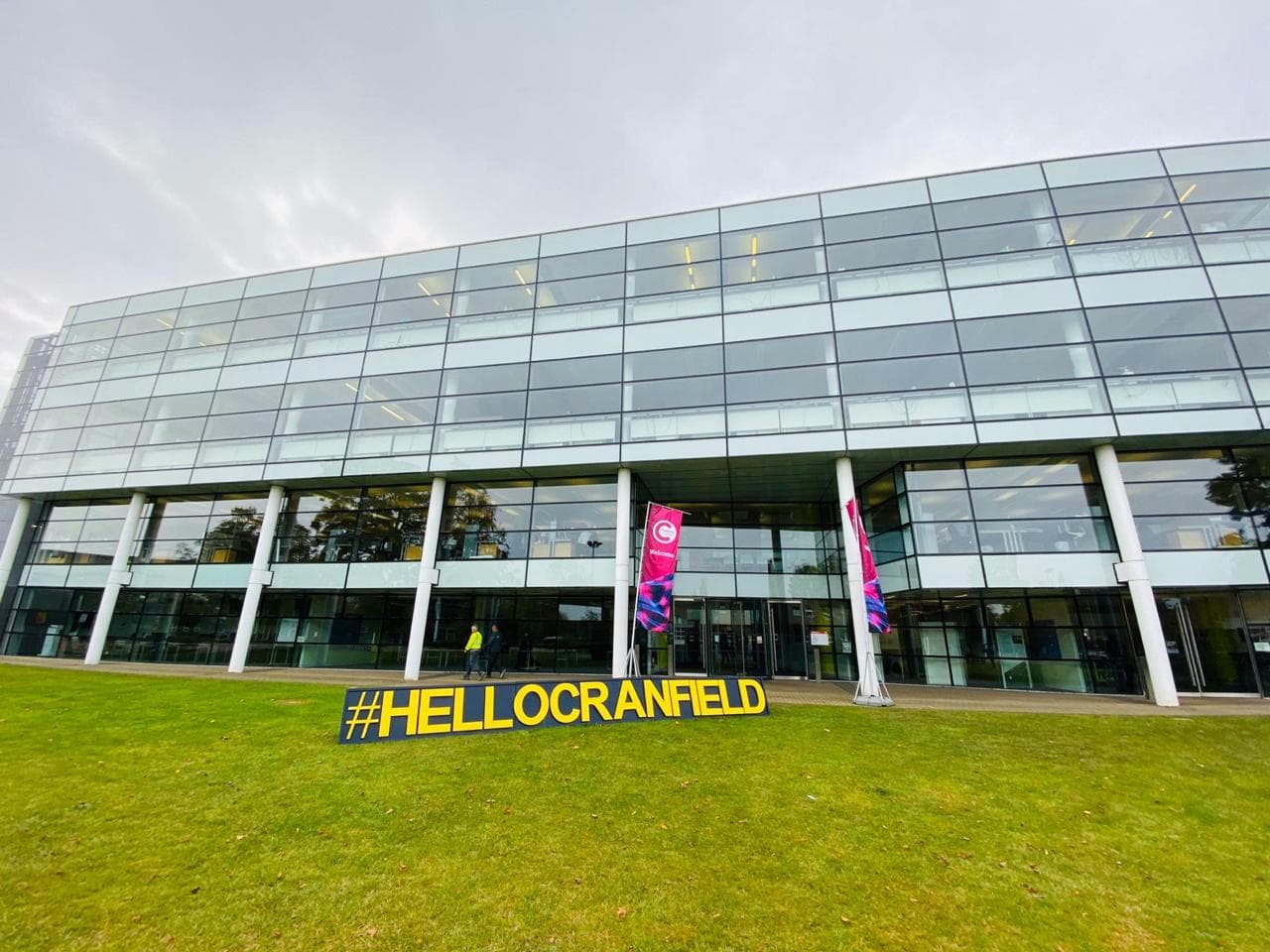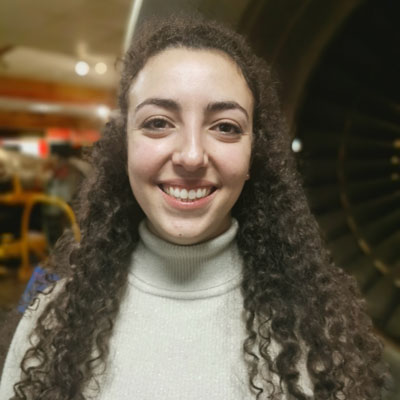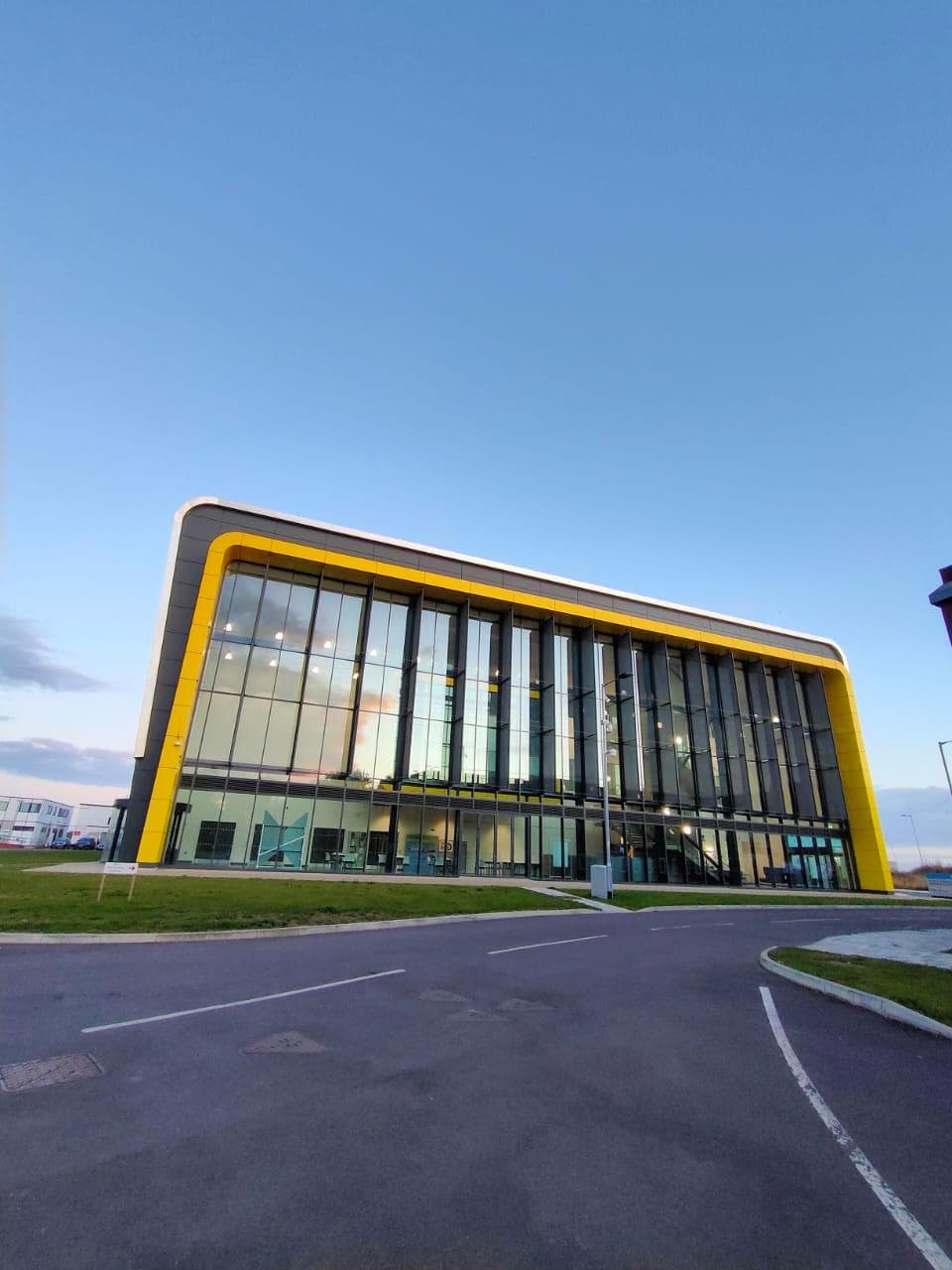I look forward to the next four months…
03/02/2020

I am Mathilde, a French student who decided to complete a double degree at Cranfield University. I attended classes of Energy process and Energy transition in my French engineering school, the Ecole des Mines de Saint-Etienne and was eager to dig deeper in mechanics such as structural mechanics, optimization of machinery while continuing to learn more fundamental and applied physics. I knew Cranfield University thanks to the agreement with my school and, so started looking into their courses and soon found exactly the Master’s course I was looking for – one which linked energy and mechanical engineering. I applied and received an offer to study the MSc in Advanced Mechanical Engineering soon after.

I applied for on-campus accommodation but unfortunately did not manage to get a room in time. Instead, I got a room in a very spacious shared house in Cranfield Village which after all satisfies me now since it is near the University and many people live there too.
After four out of my eight modules, everything is going great so far. At the beginning of the year, we were greeted with diverse gathering events such as a welcoming ceremony where the director gave a speech in front of all students. There was also a barbecue with all Energy students, a quiz with SWEE students to know the campus better, and even parties hosted by the Cranfield Student Association. This was followed by induction week where we got to know each other, our course leaders and familiarise with the University and how it works. Then the real fun began. The structure of the first two months was the following: a one week of lectures and one week of self-study. Usually, this time is established to complete an assignment which permits us to deeply assimilate the previous week. Courses are rich due to their intensity but also because there are some external lecturers which allow to better understand their field and work. I also had two exams before going to the Christmas holidays.

I am currently into the Computational Fluid Dynamic for renewable energy module which is part of the applied modules. It means that it is expanded to two weeks of lectures and practice at the same time. In addition, my colleagues, my tutor and I are also preparing the subject for the group project which we have chosen to be linked with industry. I do not know precisely in which field of energy I want to work later. However, thanks to the courses, the lectures and the reflection that self-study time gives you and seeking of group project subject, I have started to acquire a better understanding of what could be my individual thesis project and my future job.

I am very happy with my four months spent so far because, in addition to learning about different cultures, varying and complementary ways of learning, this course has given me a real deepening of my scientific knowledge applied in the field of energy. Moreover, professors presenting this formation are real experts in their field. They provide high-level training and advanced research on advanced materials, structures and implementation processes for energy and power.
I look forward to the next four months.
Categories & Tags:
Leave a comment on this post:
You might also like…
Keren Tuv: My Cranfield experience studying Renewable Energy
Hello, my name is Keren, I am from London, UK, and I am studying Renewable Energy MSc. My journey to discovering Cranfield University began when I first decided to return to academia to pursue ...
3D Metal Manufacturing in space: A look into the future
David Rico Sierra, Research Fellow in Additive Manufacturing, was recently involved in an exciting project to manufacture parts using 3D printers in space. Here he reflects on his time working with Airbus in Toulouse… ...
A Legacy of Courage: From India to Britain, Three Generations Find Their Home
My story begins with my grandfather, who plucked up the courage to travel aboard at the age of 22 and start a new life in the UK. I don’t think he would have thought that ...
Cranfield to JLR: mastering mechatronics for a dream career
My name is Jerin Tom, and in 2023 I graduated from Cranfield with an MSc in Automotive Mechatronics. Originally from India, I've always been fascinated by the world of automobiles. Why Cranfield and the ...
Bringing the vision of advanced air mobility closer to reality
Experts at Cranfield University led by Professor Antonios Tsourdos, Head of the Autonomous and Cyber-Physical Systems Centre, are part of the Air Mobility Ecosystem Consortium (AMEC), which aims to demonstrate the commercial and operational ...
Using grey literature in your research: A short guide
As you research and write your thesis, you might come across, or be looking for, ‘grey literature’. This is quite simply material that is either unpublished, or published but not in a commercial form. Types ...






